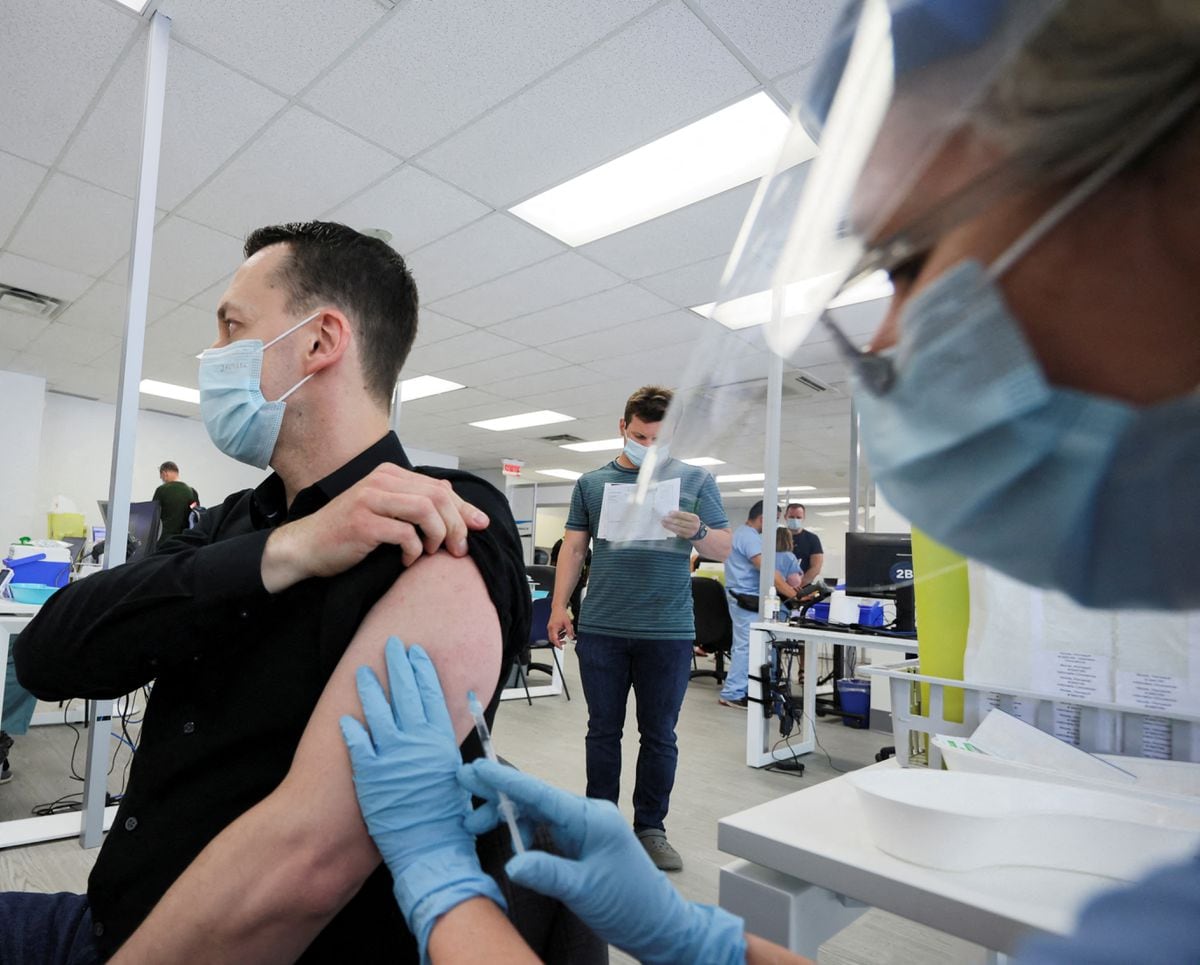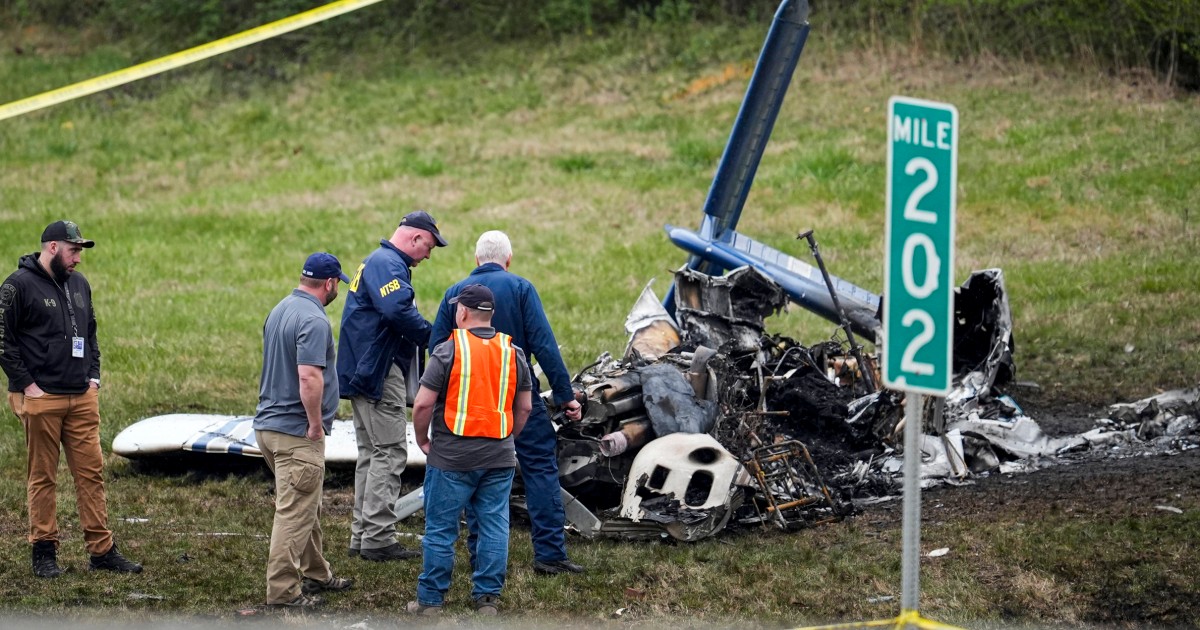The committee of experts gathered last Thursday by the World Health Organization (WHO) to assess the increase in cases of monkeypox recorded in recent weeks, which has affected some 4,500 people in more than 50 countries, has decided that The outbreak does not constitute a "public health emergency of international importance" for now.
This is the highest level of alert that the agency could declare, a consideration that currently only coronavirus and polio have.
The agency has adopted the decision based on some data and indications that indicate that the epidemiological situation may not worsen significantly in the coming weeks.
The three reasons are the lightness of the vast majority of diagnoses, the low transmission of the virus outside the risk groups —men who maintain relationships with men in environments where close contact with multiple partners and strangers is frequent— and the sustained growth but not exponential cases.
The WHO, however, warns that it could review its decision in a few weeks if any of these circumstances change from now on, as it did with the coronavirus.
So, after rejecting the emergency declaration on January 23, 2020, he did so a week later.
In fact, although the decision on monkeypox has been adopted unanimously among the fifteen members of the committee, some countries have expressed their concern about the evolution of the outbreak and the need to adopt more forceful measures to contain it before it becomes larger dimensions.
“This is clearly an evolving health threat that my colleagues and I at the WHO Secretariat are following very closely.
It requires our collective attention and coordinated action now to prevent the further spread of the virus using public health measures such as surveillance, contact tracing, isolation and patient care, and tools such as vaccines and treatments, which must be made available to at-risk populations. and be shared [among countries] in a fair way,” said the agency's director general, Tedros Adhanom Ghebreyesus, in his statement.
The head of the WHO, despite this, added that the conclusion of the report prepared by the experts establishes that the outbreak "at this time does not constitute a public health emergency of international interest", but specifies that its members admit that "the call of the committee itself reflects the growing concern” and adds that they showed “their availability to be convened again” as the data evolves in the coming weeks.
Antonio Alcamí, a researcher specialized in the viruses that cause the different types of smallpox at the Higher Center for Scientific Research (CSIC), was in favor of declaring the international emergency before the meeting of WHO experts.
“I keep thinking about it, but it is true that the situation is evolving fast and we still have a lot to know about the outbreak, so it seems right to me that they have chosen to wait a bit to see how things develop,” he says.
Daniel López Acuña, former director of WHO Health Action in Crisis, highlights the differences between monkeypox and the coronavirus.
“We are not dealing with a pathogen that can spread so quickly and massively.
The current situation requires vigilance and public health measures.
That is what the WHO is now focusing on, pending the outcome of these measures and the evolution of the outbreak.
The decision is a logical step”, he argues.
An international emergency, according to the International Health Regulations, must be declared when a “serious, sudden, abnormal or unexpected” event occurs, with “implications for public health outside the borders of the affected countries” and that “may require an intervention immediate international.
The decision gives the WHO powers that are mandatory for member countries.
The reports analyzed by the experts highlight that “the transmission [of the virus] is occurring in many countries that had never reported cases”, which suggests “that the virus has been circulating for some time before being detected” in them.
The WHO statement highlights that "to date there have been few hospitalizations" and that "one death has been recorded in an immunosuppressed person."
According to the agency, this greater lightness of the cases can be explained by an "atypical clinical presentation, with few lesions and located in the genital, perianal or perioral areas", in addition to fever and fatigue, a fact that experts relate to the way of transmission observed in the vast majority of cases.
Although data from many countries has not been made public, the latest situation report from the Ministry of Health indicates that in Spain 20 of the 736 first diagnoses have required hospitalization (according to the communities, the cases are already more than a thousand).
In Germany, with about 600, there are about thirty hospitalized.
The second reason given by the WHO for not declaring the emergency is that the spread of the virus, although important, is not exponential.
"Some preliminary reports have estimated that the reproduction number (R0) is 0.8, while in cases that identify themselves as men who have sex with men it is greater than 1," the statement collects.
This means that, in the medium and long term, the number of cases will tend to fall in a proportion of five to four if the general population is taken into account.
In the most affected group, on the other hand, it will continue to grow, although that is why the WHO calls for extreme application of public health measures (identification of cases, contact tracing, isolation, ring vaccination... .).
"It is necessary to raise awareness among the most affected population groups so that they adopt safe behaviors and protection measures," defends the WHO.
The statement also points out that some stabilization of the growth of cases has been observed "in some of the countries" first hit by the outbreak.
Despite this, the WHO admits in its resolution that "several countries point out that, given the reduced immunity of the population against the viruses that cause different types of smallpox [those born after 1980 are not vaccinated against the traditional one, which confers protection against that of the monkey] there is a risk of a greater and sustained transmission of the virus towards other population groups”.
The fact that this has not happened in a relevant way so far is the third reason that leads the WHO not to declare the international emergency for now.
The greatest risk, the agency points out, is that the virus hits more vulnerable population groups such as children, pregnant women and immunosuppressed people.
According to the Health report, so far only seven women and no children have contracted the virus in Spain (the youngest case detected is 18 years old).
In the United Kingdom, after Spain the most affected country with 910 diagnosed cases, only five of the first 759 cases were women, and in France only one of the first 300.
The health authorities of the Paris region have reported this Saturday the first case of monkeypox in a child.
This is a primary school student whose condition is mild.
Contact tracing has detected another probable case, a brother.
The ongoing investigations seek to rule out more infections in the minor's environment and the statement does not specify the origin of the infection.
According to the experts consulted, it is foreseeable that more episodes of this type will occur, which will not be serious as long as the chain of infections is detected and cut.
The scenario would change, they point out, if it is not known how the child became infected.
The WHO committee urges countries to undertake extreme vigilance over these episodes.
In this sense, the statement affirms that the current position could be reassessed if one or more of the following events were observed during the coming weeks: “Increase in the growth rate of cases in the next 21 days, either among risk groups currently affected or others”;
“detection of cases among sex workers”;
“significant increase in endemic countries, in new areas or in those already affected”;
“increase in diagnoses in vulnerable groups, such as the immunosuppressed (including people with HIV that is not adequately controlled), pregnant women, and children”;
“evidence of the jump of the virus to animal species”;
Genetic changes in the virus that point to increased transmissibility, virulence,
immune escape capacity, resistance to antivirals”, “failure of the containment measures adopted”;
and “clusters of cases with more virulent virus variants.”
50% off
Exclusive content for subscribers
read without limits
subscribe
I'm already a subscriber








